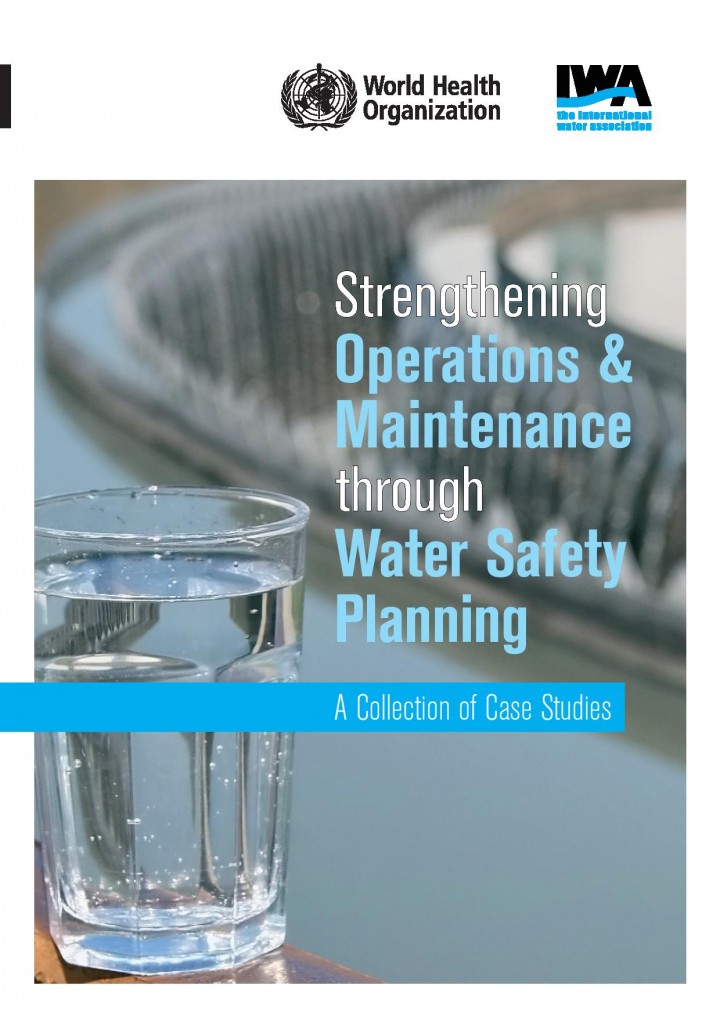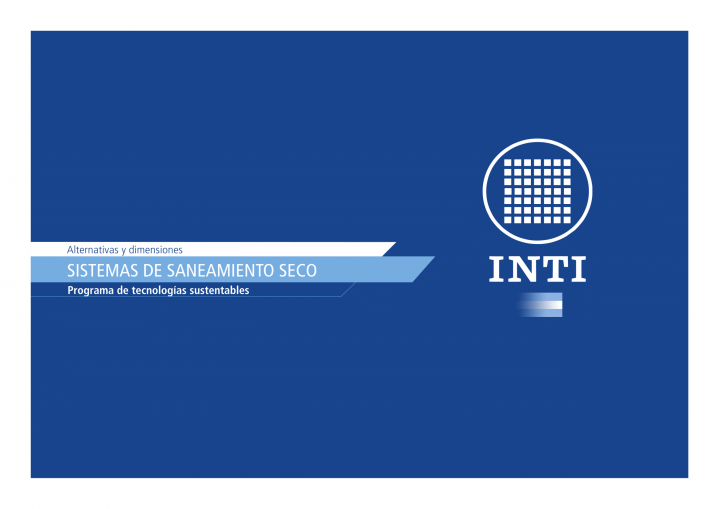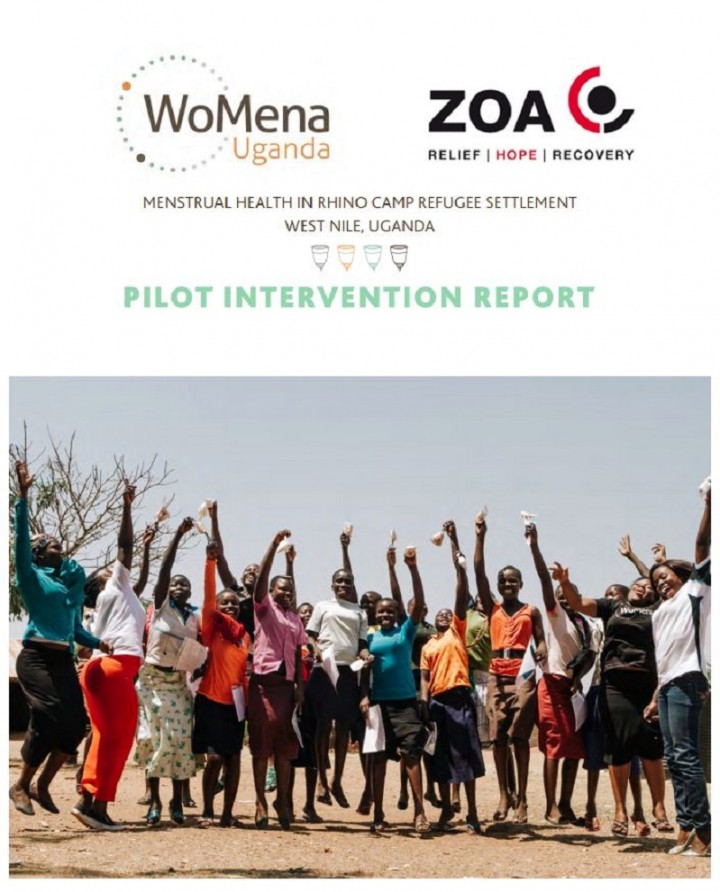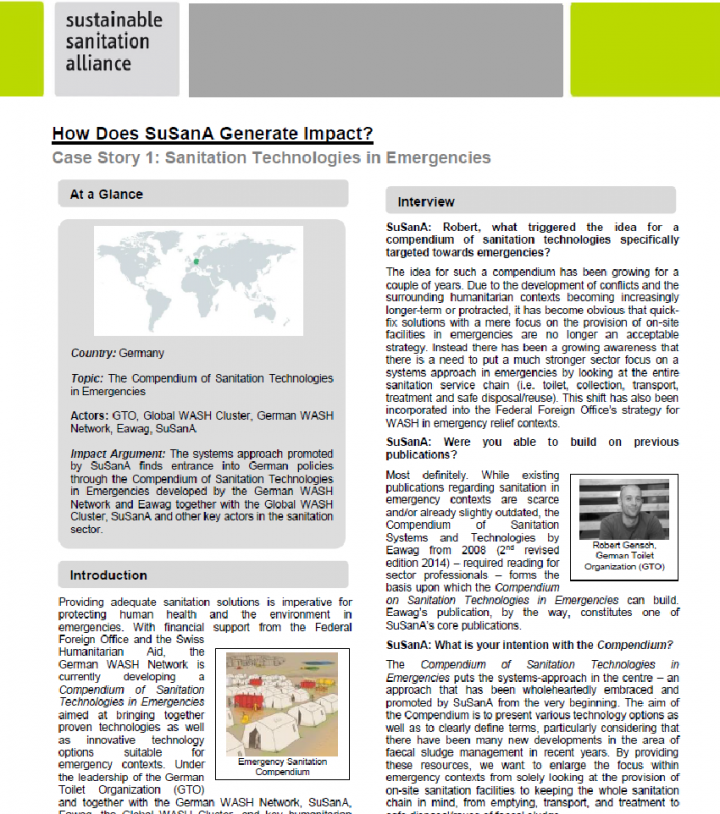WHO, IWA (2018) Strengthening Operations & Maintenance through Water Safety Planning A Collection of Case Studies
Strong operations and maintenance (O&M) programmes underpin the effectiveness and sustainability of drinking-water supply systems. Increased attention to and investment in O&M is needed to ensure that water safety and service delivery targets are consistently met and that public health is protected. Water safety plans (WSPs) are a valuable tool to strengthen O&M programmes, and may contribute to improved O&M by supporting the systematic assessment, prioritization […]
SFD Promotion Initiative (2018) SFD Survey Report
This report summarizes the results obtained from an on-line survey conducted by the Shit Flow Diagram Promotion Initiative (SFD-PI) as a key deliverable of the SFD project. The survey was launched on April 11th, 2018 and ran for three weeks until May 1st, 2018. The survey was intended to collect people’s opinions about different aspects of the SFD project, including the web portal, the manual, various tools, all […]
Guppy, L., Uyttendaele, P., Villholth, K. G., Smakhtin, V. (2018) Groundwater and Sustainable Development Goals Analysis of Interlinkages
Groundwater represents 97% of the world’s available freshwater resources and is extensively abstracted throughout the world. While abundant in a global context, it can only de developed to a certain extent without causing environmental impacts. Also, it is highly variable across the globe, and where it is heavily relied on, it is less renewable. Hence, it is critically important that this resource is managed sustainably. […]
WHO, UNICEF (2018) Core questions and indicators for monitoring WASH in health care facilities in the Sustainable Development Goals
WHO and UNICEF, working with the Global Task Team for monitoring WASH in health care facilities (HCF), have developed a set of core questions and indicators for WASH in HCF, in support of monitoring WASH in the 2030 Agenda for Sustainable Development. The indicators include definitions for basic water, sanitation, hand hygiene, health care waste management, and environmental cleaning services. WHO and UNICEF are in […]
Mateo-Sagasta, J., Marjani Zadeh, S., Turral, H. and Burke, J. (2017) Water pollution from agriculture: a global review Executive summary
Water pollution is a global challenge that has increased in both developed and developing countries, undermining economic growth as well as the physical and environmental health of billions of people. In many countries the biggest source of water pollution today is agriculture - not cities or industry - while worldwide, the most common chemical contaminant found in groundwater aquifers is nitrate from farming, according to […]
Fernandez Curutchet, M., Dabbah, F., Hock, D. (2018) Alternativas y dimensiones de sistemas de saneamiento seco en formato gráfico (in Spanish) Alternatives and dimensions of dry sanitation systems in graphic format
El programa de Tecnologías Sustentables promueve la difusión, capacitación, legislación e implementación de los sistemas de saneamiento descentralizados domiciliarios y municipales donde incluimos a los sistemas de saneamiento seco. Con asistencia gráfica y editorial de los estudiantes del último año de la escuela secundaria San Antonio de Padua de Jose Leon Suares, Buenos Aires, Argentina, quienes realizaron una pasantia de 200hs como primera experiencia laboral se […]
Gade, A., Hytti, L. (2017) Menstrual health in Rhino Camp refugee settlement, West Nile, Uganda Pilot project intervention report
A Menstrual Health pilot project by WoMena and ZOA implemented among South Sudanese refugees and host population in Rhino Camp Refugee Settlement in northern Uganda. The pilot involved 4 primary schools, including students, parents and teachers, over 6 months. 4 different distribution models were applied among the participants; one school got MCs only, one school got reusable pads only, one school could choose one of […]
SFD Promotion Initiative (2018) Guidance for using the SFD Graphic Generator
The three guidance documents serve the purpose to facilitate and enhance the usage of the SFD Graphic Generator (GG). The "Classification Tool" helps SFD producers to select the most appropriate sanitation systems from the SFD Selection Grid. A support to the step 2 of the SFD GG, the estimation of the proportion of contents of each type of onsite container (tank or pit) which is […]
Laramee, J. E. (2017) Assessing Lifecycle Costs and Benefits of Integrated Sanitation and Energy Recovery Strategies in low-income Countries (PhD thesis)
By mid-century, the global urban population is projected to increase by 2.4 billion people with 60% of growth expected to take place in cites of sub-Saharan Africa (SSA) and South Asia (SA) (UN-DESA, 2015). These regions have some of the lowest rates of urban sanitation coverage and modern fuel access, with only 41% and 67% estimated to have access to improved sanitation and 19% and […]
SuSanA (2019) How does SuSanA generate impact? A compilation of SuSanA Impact Stories
Selected sanitation projects from different parts of the world were requested to report on how SuSanA had influenced the work carried out. This resulted in a variety of evidence indicating that SuSanA can have a far-reaching effect providing expertise, convenor of meetings, a source of online information, networked contacts, discussion platform and a place to disseminate reports and publications. Case Story 1: Sanitation Technologies in Emergencies Case […]
Briemberg, J. (2018) SFD Report - Bilwi, Nicaragua SFD Promotion Initiative
Bilwi (also known as Puerto Cabezas) is located in the northeast of Nicaragua on the Caribbean coast. The current population size is estimated to be between 66,790 and 73,615 based on between 12,205 and 14,723 registered properties that are currently inhabited with an average population of five people per lot and a population density in the order of 15,000/km2. Bilwi has demonstrated an accelerated growth […]
WaterAid (2018) SFD Lite Report - Wa, Ghana SFD Promotion Initiative
The Upper West Region of Ghana is located in the north-western corner of Ghana with the Wa Municipality in the south-eastern part of the Upper West region. Currently, the total population of the Municipality stands at 127,284 and its population density is 542 persons per sq. km. The Municipality has an urban population growth rate of 4% as compared to the national urban growth rate […]
Rohilla, S.K., Luthra, B., Padhi, S.K., Gupta, B. (2017) SFD Report - Ramnagar, India SFD Promotion Initiative
Ramnagar city is situated on the banks of the Ganga River in the state of Uttar Pradesh, India. The population of the city is 49,132 and its population density is 13,572 persons per sq.km (data from 2011). The slum population is 1,958, representing 3.98% of the total population. The existing sewer network covers about 70% of the households. The rest of the city (16%) is either […]
Rohilla, S.K., Luthra, B., Padhi, S.K., Yadav, A. (2017) SFD Report - Katihar, India SFD Promotion Initiative
Katihar, the district headquarters of Katihar District, is located in the state of Bihar, India. The population of Katihar city is 240,838 with a population density of 9,437 persons per sq.km (Data from 2011). During the post-independence period, commerce showed a phenomenal increase with the associated small scale industrial development, which resulted in the increase of city population. 72 % of the population relies on […]
Rohilla, S.K., Luthra, B., Padhi, S.K., Bhatnagar, A. (2017) SFD Report - Gangaghat, India SFD Promotion Initiative
The city of Gangaghat is located 83 km south west from Lucknow, the state capital. The population of the city is 84,072 (data from 2011) with a population density of 17,122 persons per sq.km. It was found that there is no sewerage network and the entire population is dependent on Onsite Sanitation Systems (OSS). Septic tank connected to open drain is used by 70% population, 14% […]
Deutsche Gesellschaft fuer Internationale Zusammenarbeit (GIZ), Eschborn, Germany (2018) Poster: What gets measured gets done Direct and indirect MHM indicators within the SDG WinS Monitoring Framework
There is a growing pool of evidence with regard to the effectiveness of school-based MHM interventions under WASH in Schools (WinS). This is because schools provide the ideal environment to reach all girls and boys and address taboos and misconceptions in a culturally sensitive manner. Ministries of Education (MoE) have the power and the responsibility to transform schools into places with MHM-friendly facilities that allow for […]
Rohilla, S.K.,Luthra, B., Padhi, S.K., Gupta, B. (2017) SFD Report - Chunar, India SFD Promotion Initiative
Chunar is situated on the banks of River Ganga and River Jirgo, in the state of Uttar Pradesh, India. The population of the city is 37,185 (data from 2011). There is no sewerage network in the city and 71% of the city is dependent on onsite sanitation systems (OSS), out of which 60% are dependent on septic tanks and around 11% on pits. 29% of the […]
Rohilla, S.K., Luthra, B., Padhi, S.K., Bhatnagar, A. (2017) SFD Report - Buxar, India SFD Promotion Initiative
Buxar city is situated on the banks of River Ganga in the state of Bihar, India. The population of the city is 102,861, while slum population is 10,161 (data from 2011). It was observed that there is no sewerage network existing in the city and the equivalent population is dependent on Onsite Sanitation Systems (OSS). There is no treatment facility available for FS generated. Emptied FS […]
Rohilla, S.K., Luthra, B., Yadav, A., Varadharajan, A. (2017) SFD Report - Bongaon, India SFD Promotion Initiative
Bongaon city lies in the state of West Bengal, India. It has a population of 108,864 of which the slum population accounts to 37.04% of the total population (data from 2011). All households are dependent currently on Onsite Sanitation Systems (OSS). The town does not have any treatment facility for FS. 45% FS, which gets emptied, is transported and discharged untreated into solid waste landfill […]
Rohilla, S.K., Luthra, B., Padhi, S.K., Varadharajan, A. (2017) SFD Report - Bodhgaya, India SFD Promotion Initiative
Bodhgaya is a small town, located in the Gaya district of Bihar. A population size of 51,900 was considered for the preparation of the SFD. There is no treatment facility available for sewage and faecal sludge generated in the town. 51% of the population of Bodhgaya depends on Onsite Sanitation Systems. The FS collected by the vacuum tankers is discharged into open fields […]




















